Symposiumon Activating and Utilizing Cultural Heritage and RuralRevitalization hosted by our college was successfully concluded inJiangmen City
Author:Source:bevictor伟德官网英文版 Time:2020-05-26Click:11
Return
bmissiontime: 21:03:17, November 19, 2019
Onthe morning of November 16, the academic seminar on cultural heritageactivation and rural revitalization was held in Jiangmen. The seminarwas sponsored by South China Agricultural University and the ChineseAgricultural History Society. It was supported by JiangmenAgricultural and Rural Bureau, Culture, Radio, TV, Tourism and SportsBureau. The China Agricultural Historical Heritage ResearchInstitute, the Rural Revitalization Strategy Research Institute ofSouth China Agricultural University and the Guangzhou AgriculturalCultural Heritage Research Base are co-hosts. From the Rural EconomicResearch Center of the Ministry of Agriculture and Rural Affairs,China Agricultural Museum, Jiangxi Academy of Social Sciences, ChinaAgricultural University, Nanjing Agricultural University, NorthwestAgriculture and Forestry University, Jiangxi Agricultural University,Southwest Forestry University, Jishou University, HeilongjiangUniversity, South China Normal University, Jinan More than 100experts and scholars from universities, research institutes and newsmedia units gathered together to discuss the role of culturalheritage in rural revitalization. Guangdong Provincial Department ofAgriculture and Rural Affairs Liu Fuqirong, Deputy Director of SocialService Promotion Department Yang Lina,Vice Mayor of Jiangmen CityPeople's Government Wang Changqing, Deputy Chairman of the ChineseAgricultural History Society Professor Hui Fuping, Deputy Director ofJiangmen Agriculture and Rural Bureau Zhong Guohuo, Liu Ling, DeputyDirector of the Humanities and Social Sciences Division of SouthChina Agricultural University, Professor Yang Nailiang, Dean of theCollege of Humanities and Law, and Professor Liu Hongbin, School ofArt attended the seminar. The opening ceremony was presided over byProfessor Tan Yanwen, a distinguished professor of Pearl RiverScholars and executive dean of the Rural Development StrategyResearch Institute of South China Agricultural University.
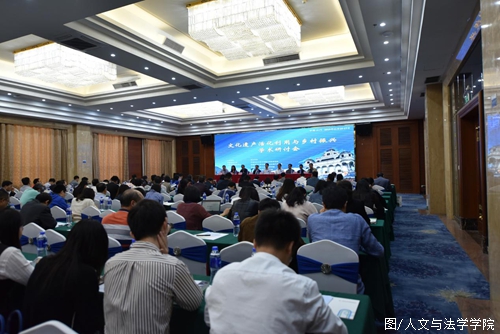
Theopening ceremony of the seminar
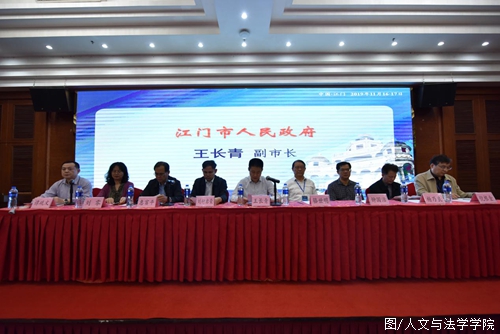
Therostrum of the opening ceremony of the seminar
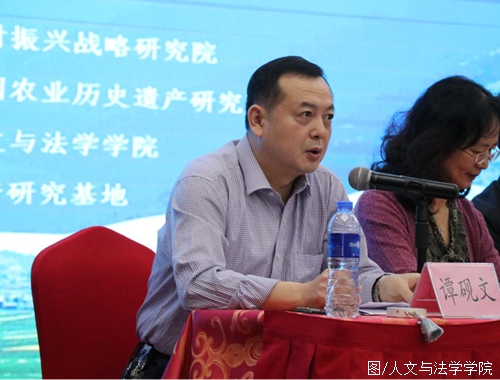
PearlRiver Scholar Professor Tan Yanwen presided over the opening ceremony
ViceMayor Wang Changqing mentioned that an important part of Jiangmen ’srural revitalization work is to “activate” Jiangmen ’s richcultural heritage resources so that it can be fully released andintegrated into the development of rural industries. He said that theselection of this seminar in Jiangmen was not only a full affirmationof Jiangmen's rural revitalization work, but also a good opportunityto "examine the pulse" for Jiangmen's rural revitalizationwork.
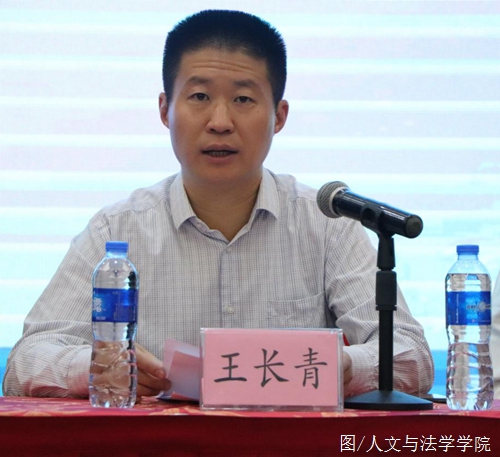
ViceMayor Wang Changqing of Jiangmen Municipal People's Governmentdelivered a speech at the opening ceremony
DeputyDirector Liu Ling delivered a welcome speech on behalf of the school,warmly welcomed the experts and scholars attending the seminar, andintroduced the basic situation of South China Agricultural Universityin recent years. Liu Ling said that this seminar is the secondnational rural revitalization academic forum jointly organized by theRural Revitalization Strategy Research Institute and the ChinaAgricultural Historical Heritage Research Institute. The excavation,inheritance and protection of culture are of great practicalsignificance.
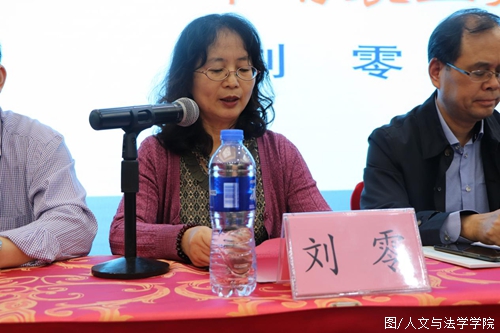
LiuLing, Deputy Director of the Humanities and Social SciencesDepartment of South China Agricultural University, addressed theopening ceremony
ProfessorHui Fuping said that the inheritance of farming culture is themeaning of implementing the strategy of rural revitalization. Solvingthe three rural issues and achieving every goal of ruralrevitalization, excellent farming culture must not be absent. At thesame time, he affirmed the important contribution of the ChinaAgricultural History and Heritage Research Institute of South ChinaAgricultural University in the past half a century.
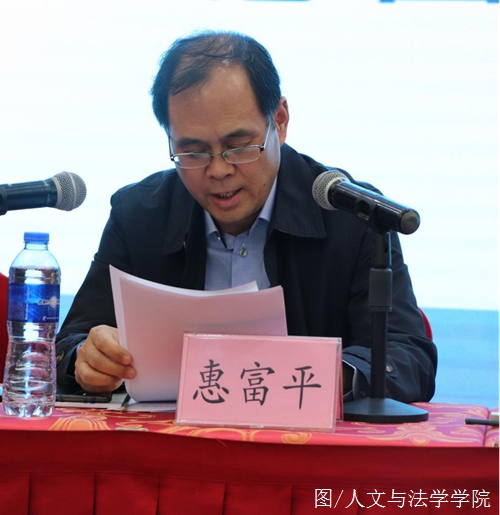
ProfessorHui Fuping, Vice Chairman of the Chinese Agricultural HistorySociety, addressed the opening ceremony
Finally,inspector Liu Fuqirong, a second-level inspector of the GuangdongProvincial Department of Agriculture and Rural Affairs, said that thecountry ’s implementation of the rural revitalization strategyprovides an important opportunity for the activation and utilizationof rural cultural heritage in our province. It is of greatsignificance to discuss and study the activation and utilization ofcultural heritage to help rural revitalization . It is hoped thatthrough this seminar, good opinions and suggestions will be summed upto jointly promote the activation and utilization of the culturalheritage of our province, so that the revitalization of rural culturewill become a new engine for the promotion of rural revitalization inour province.
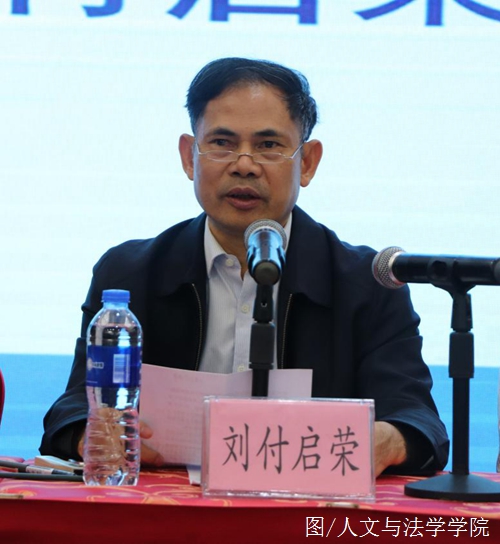
InspectorLiu Fuqirong addressed the opening ceremony
Afterthe opening ceremony, Prof. Ni Genjin, Vice Chairman of ChinaAgricultural Cultural Heritage Branch and Director of ChinaAgricultural Historical Heritage Research Institute of South ChinaAgricultural University, presided over the report.
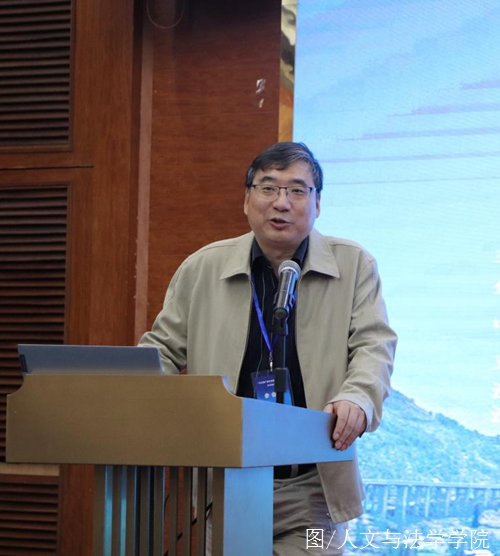
ProfessorNi Genjin presided over the conference report
ProfessorLuo Shiming, the former president of South China AgriculturalUniversity, the former vice chairman of the Chinese Society ofEcology, and a famous teacher in the country, gave a report on thetheme of "Chinese traditional agricultural wisdom and ecologicalagriculture". Taking the typical case of traditionalagricultural development as an entry point, he analyzed theecological wisdom of traditional Chinese agriculture and thestructural convergence of traditional agriculture. Luo Shiming saidthat he should seek wisdom from excellent traditional agriculture tohelp the country revitalize.
ProfessorLi Jun, deputy dean of the School of Economics and Management ofChina Agricultural University and a researcher at the NationalAgricultural and Rural Development Research Institute, gave aconference report titled "Several Difficulties in Promoting theEfforts to Eliminate Poverty and Strengthen Rural Development"He pointed out that both poverty alleviation and rural rejuvenationare important strategic plans for achieving the goal of "twohundred years". The key to handling the relationship between thetwo is to properly resolve the relationship between the governmentand the market, short-term and long-term, development andenvironmental protection, and material and spiritual.
Thereport of the conference by Professor Lu Yong, Deputy Director of theHumanities and Social Sciences Division of Nanjing AgriculturalUniversity and Executive Deputy Director of the China AgriculturalCivilization Museum, has the theme of "Inheritance ofAgricultural Cultural Heritage Protection and Industrial Integrationand Development". He said that the development of green plantingindustry and characteristic rural tourism has become the trend of thefuture rural areas. It is recommended that under the encouragementand drive of the current agricultural cultural heritage, moreattention should be paid to traditional farming techniques,protection and excavation of rural landscapes, global tourism and onetwo three Coordinated development of industrial integration.
TanJinhua, Associate Professor of Stanford University DistinguishedScholars and Associate Professor Tan Jinhua of the Guangdong OverseasChinese Township Cultural Research Center of Wuyi University, tookCangdong Village as an example to analyze the rural revitalizationand development from the perspective of cultural heritage. Sheemphasized that the core of the Cangdong plan is cohesion and a senseof belonging. Protecting heritage is equivalent to retainingnostalgia, and joint construction and sharing is equal to ruralrevitalization.
LanShaoqing, director of the Guangdong Museum of Traditional ChineseMedicine and a member of the Guangdong Provincial Intangible CulturalHeritage Protection Committee, gave a report entitled "Inheritingthe Essence of Tangerine Peel and Accomplishing a Better Life".He emphasized the support of the three major policies for the Xinhuitangerine peel industry, and pointed out that it is important toinherit and develop the cause of traditional Chinese medicine andprotect intangible cultural heritage such as traditional medicine andtraditional Chinese medicine processing skills.
ProfessorTan Yanwen, the national cassava industry technology systemindustrial economic post scientist and executive deputy director ofGuangdong Rural Policy Research Center, gave a conference report onthe theme of "cultural revitalization and industrialdevelopment". Taking the Dapu tapioca snacks in Meizhou,Guangdong as an example, he pointed out that taking culture as thecore, technology as the support, and constantly advancing with thetimes is a path choice to achieve the integration and revitalizationof rural industries. At the same time, he introduced the "fourclosed-loop" rural revitalization model in Tangkou Town, KaipingCity, which provided a reference for the construction of ruralrevitalization in other regions.
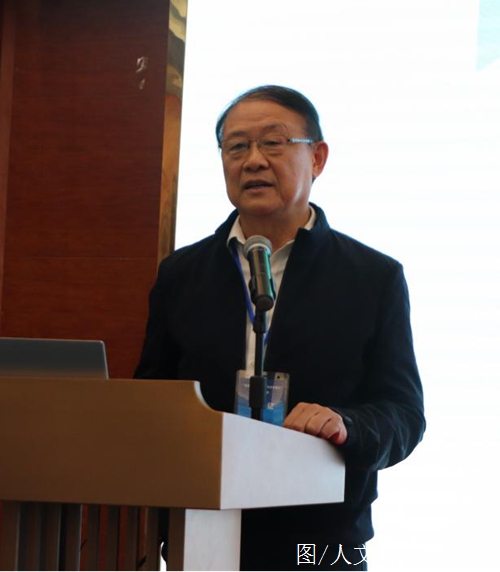
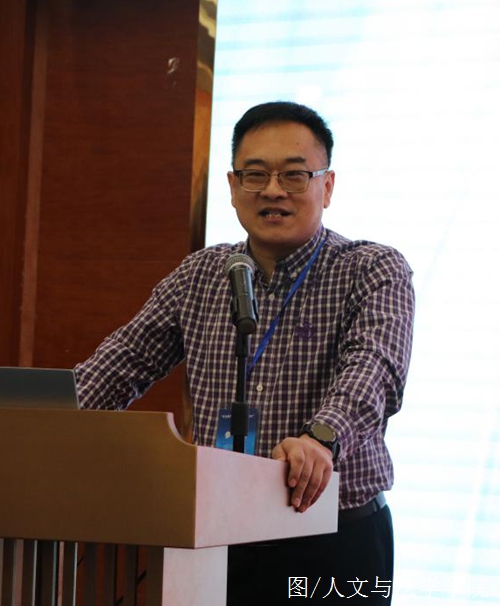
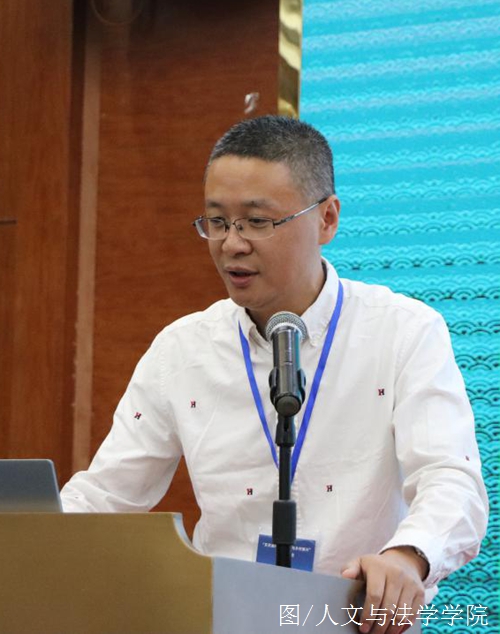
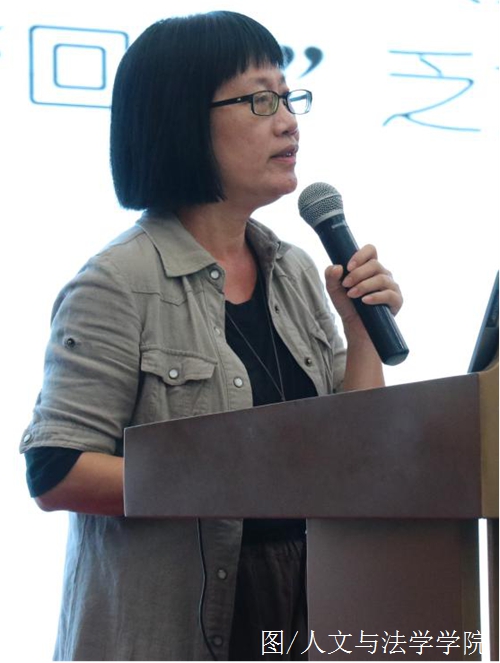
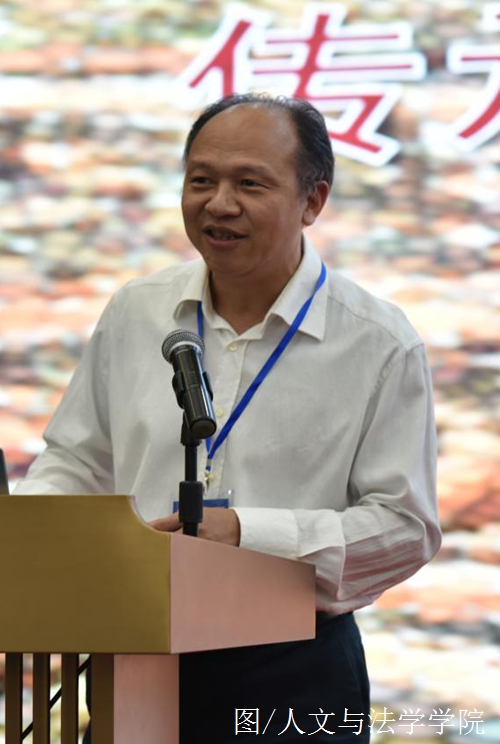
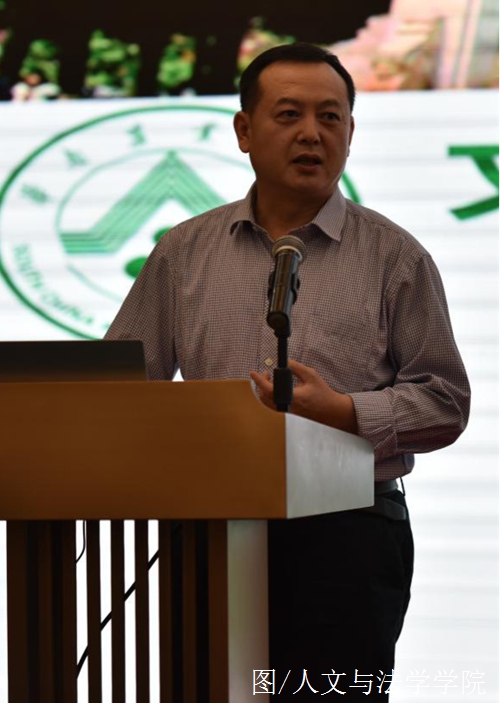
Sixexperts gave reports on the conference
Onthe afternoon of the same day, the participating experts and scholarsconducted a sub-forum report on three topics: "AgriculturalHistory and Heritage Research", "Protection and Inheritanceof Cultural Heritage" and "Contemporary Rural CulturalConstruction and Practice Research" Own research results andexperience.
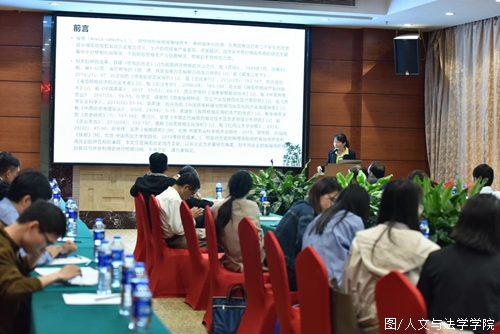
AgriculturalHistory and Heritage Research Branch
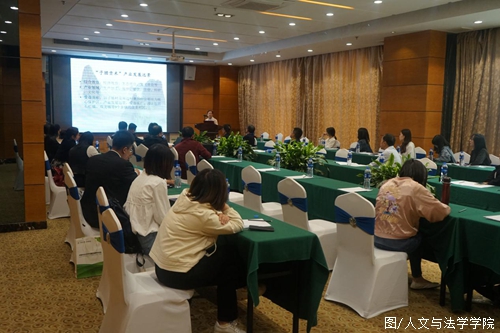
Branchvenue for the protection and inheritance of cultural heritage
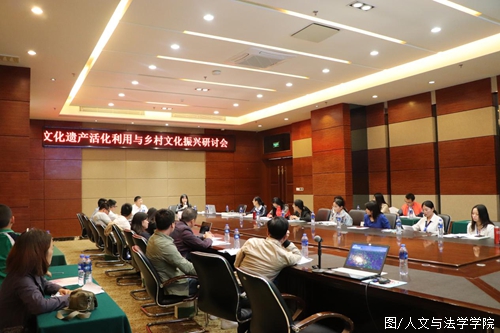
ContemporaryRural Culture Construction and Practice Research
Onthe 17th, the participating scholars also went to Chenpi Village andKaiping Diaolou, a world cultural heritage site, to learn about thesuccessful experience of the activation and utilization of localcultural heritage.
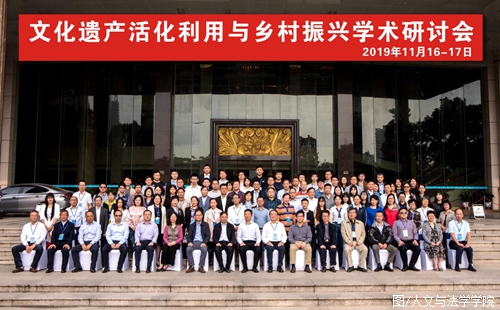
Allrepresentatives took a picture
Thisseminar is the second national conference on rural revitalizationco-organized by the Chinese Academy of Agricultural HistoricalHeritage and the Rural Revitalization Strategy Research Institute. Itis a useful practice in response to the rural revitalization strategyand shows the cultural heritage in the new era. The research resultedof activation and utilization and rural revitalization,reflectedthe combination of tradition and modernity, and provideda strong reference for the comprehensive promotion of the excavation,protection and utilization of rural cultural heritage. Promoting theimplementation of the rural revitalization strategy hadimportant practical significance.
Author:Text/Qu Jing
Picture:ChenShuping,ChengGuiping, etc.
Source:College of Humanities and Law


